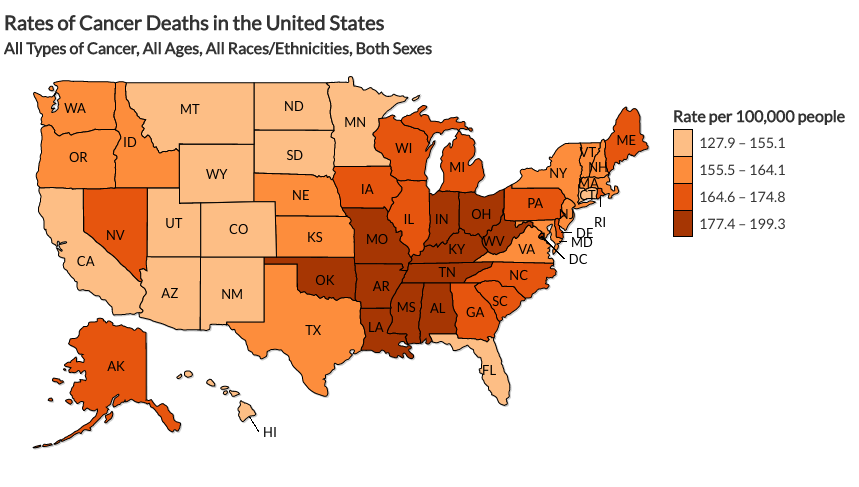Medical Progress Extends American Lifespan Amidst Rising Health Challenges: Cancer Treatment Advances, Yet Health Declines Persist
Title: The Paradox of Longer Lives and Diminishing Health: A Call for Preventive Measures
Introduction:
The United States has undoubtedly experienced significant progress in treating cancer, resulting in increased survival rates and extended lifespans. However, a concerning trend is emerging - despite living longer, Americans are spending less time in good health. This paradox can be attributed to both the triumphs of modern medicine in treating life-threatening diseases and the simultaneous rise in preventable conditions like obesity, diabetes, and substance-use disorders. It's crucial to address this issue by strengthening preventive measures to tackle not only the most common cancers, such as breast cancer, prostate cancer, and melanoma, but also broader health problems that compromise the overall well-being of individuals.
The Effect of Medical Advances:
Advancements in medical technology and research have allowed healthcare professionals to catch and treat diseases earlier and more effectively than ever before. Conditions that were once deemed fatal are now manageable due to breakthroughs in targeted therapies, chemotherapy, immunotherapy, and precision medicine. Consequently, more lives are being saved, and people are living longer with cancer and other chronic illnesses. However, this increase in life expectancy does not necessarily equate to an extension of quality health.
The Rise of Preventable Conditions:
While medical advancements have contributed to longer life expectancies, Americans are facing a surge in preventable conditions, such as obesity, diabetes, and substance-use disorders. These health issues, often affecting individuals at a younger age, not only decrease the number of healthy years they may experience but also place additional burdens on healthcare systems and resources.
Obesity, for instance, is associated with an increased risk of developing various types of cancer, including breast, prostate, and colorectal cancer. Moreover, it also elevates the chances of heart disease, diabetes, and other chronic illnesses that significantly impact an individual's overall well-being. Similarly, the growing prevalence of diabetes has serious long-term consequences, leading to complications such as cardiovascular disease, kidney failure, and neuropathy.
Furthermore, substance-use disorders, particularly involving opioids, have reached alarming levels in the United States. These disorders not only affect overall health but also increase the risk of diseases such as hepatitis C and HIV/AIDS due to shared needle usage. Thus, the combination of medical advances and rising preventable conditions poses a significant challenge in ensuring a healthier and longer life for all Americans.
The Importance of Preventive Measures:
To combat this concerning trend, a shift towards prioritizing preventive measures is essential. While medical advancements must continue to be pursued, the focus should also be on educating the public about the importance of a healthy lifestyle and facilitating access to resources that promote overall well-being.
Prevention efforts should encompass strategies such as public health campaigns promoting healthy eating habits, regular exercise, and the avoidance of substance abuse. Additionally, enhancing access to quality healthcare and promoting routine screenings and vaccinations can aid in early detection and prevention of diseases such as cancer.
Moreover, addressing socioeconomic factors, including education, income inequality, and access to nutritious food, is crucial to effectively tackle the root causes of preventable conditions. Collaborative efforts between the government, healthcare institutions, community organizations, and individuals are necessary to create an environment conducive to a healthier society.
Conclusion:
While medical advancements have undoubtedly improved survival rates and prolonged lifespans, it is crucial to acknowledge that attaining a longer life is not synonymous with a healthier life. Americans face a paradox where advances in treating cancer are overshadowed by a rise in preventable conditions, compromising overall health and well-being. To address this issue, a comprehensive approach focusing on preventive measures is imperative. By striking a balance between medical breakthroughs and proactive health initiatives, we can strive to assist individuals in living longer, healthier lives and reduce the burden on healthcare systems.


